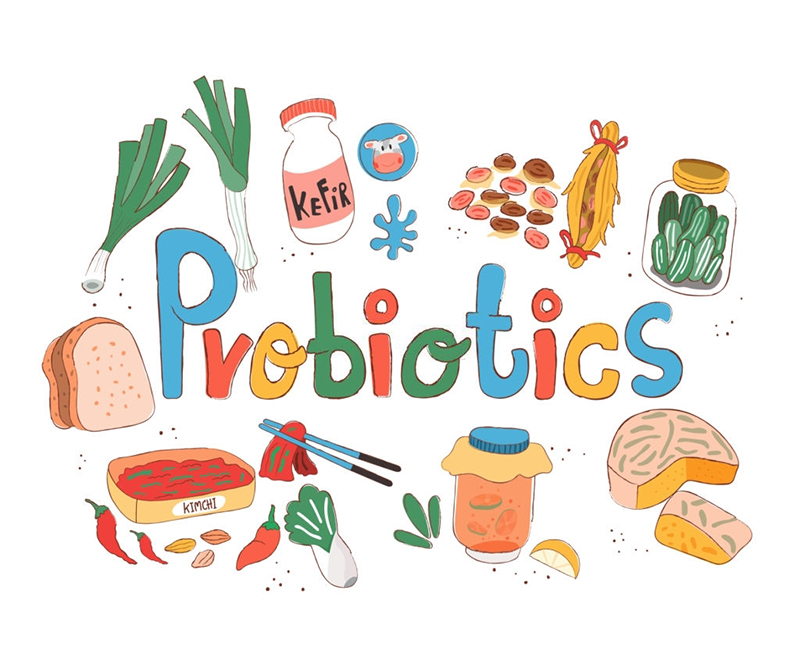Kefir, kimchi, and kombucha are among the many ‘gut-friendly’ probiotic items on store shelves. Can they, however, truly alter your health, or are you simply wasting money? Probiotic foods and supplements can be costly, and it’s difficult to sort through the creative marketing to figure out what’s worth purchasing and what should be left on the shelf. We talked to gut health specialists to figure out what the research says about common gut health products and what simple steps you can do to improve your gut health. probioticseverything.combifina r probiotics how to use
What is the gut microbiome, and what does it do?
In our digestive tract, the gut microbiome is a large ecosystem of complex species. It’s in charge of ensuring that we get the most out of our food by ensuring that it’s digested properly and nutrients are absorbed. probioticseverything.combifina r probiotics how to use
It also houses 70% of our immune system, as well as trillions of bacteria that affect our overall health, including mental health, heart health, renal health, and other factors.
Probiotic bacteria, sometimes known as “good bacteria,” are found naturally in your gut and serve an important role in this microscopic world. They can, however, be interrupted by a variety of conditions, such as a bad diet, stress, or taking antibiotics. probioticseverything.combifina r probiotics how to use
Prebiotics provide vital nutrients that boost the growth of the ‘good bacteria’ that already reside in your gut, while probiotic foods and supplements contain comparable bacteria that are supposed to benefit your gut flora. probioticseverything.combifina r probiotics how to use
Increasing the health of your intestines
Interest in improving your gut health has developed as we have gained a better knowledge of how crucial it is for our overall health. However, determining how to best nourish our gut microbiome can be challenging. Nobody knows what a ‘normal’ microbiome should look like, and gut bacteria diversity differs from person to person. probioticseverything.combifina r probiotics how to use
While eating a varied and balanced diet, getting enough sleep, and controlling stress are the best ways to improve your gut health, there is some evidence that probiotics can help, depending on your symptoms. There’s also some evidence for additional items. probioticseverything.combifina r probiotics how to use
If you experience persistent, difficult-to-treat digestive issues like constipation, diarrhoea, or bloating, keep a journal of your symptoms and consult your doctor, who may send you to a dietician.
The golden rule is that treatment should be tailored to your unique symptoms. Certain types of probiotics, for example, have some indication of lowering IBS symptoms, while others do not. Some treatments may make things worse – for example, excessive dosages of prebiotics may exacerbate IBS symptoms. probioticseverything.combifina r probiotics how to use
Supplements with probiotics and prebiotics
Do probiotics have any effect? There is no universal agreement on the usefulness of probiotic supplementation.
No health claims have been approved as proven when the evidence has been examined by the European Food Safety Authority, hence the term “probiotic” is not authorized to appear on products sold within the EU (EFSA).
Short-chain fatty acids are produced by some probiotic species, such as lactobacilli and bifidobacteria, and are thought to boost the growth of good bacteria already present in the gut while also providing energy to the gut wall. probioticseverything.combifina r probiotics how to use
When should you use probiotics?
While additional research is needed before the EFSA approves any probiotic-related health claims, there is some evidence that probiotics can assist with IBS symptoms and antibiotic-associated diarrhoea, but it’s critical to match the bacteria strain to your unique symptoms. Human clinical studies have been conducted on the following strains: probioticseverything.com
– Lactobacillus rhamnosus GG has been shown to aid in the prevention of antibiotic-related diarrhoea.
– Some research have linked Bifidobacterium lactis to constipation treatment.
– Probiotics have been shown to aid people with IBS, although they may not work for everyone. Alflorex, BioKult Advanced, Symprove, and VSL3 are some of the products that have been studied in relation to IBS.







